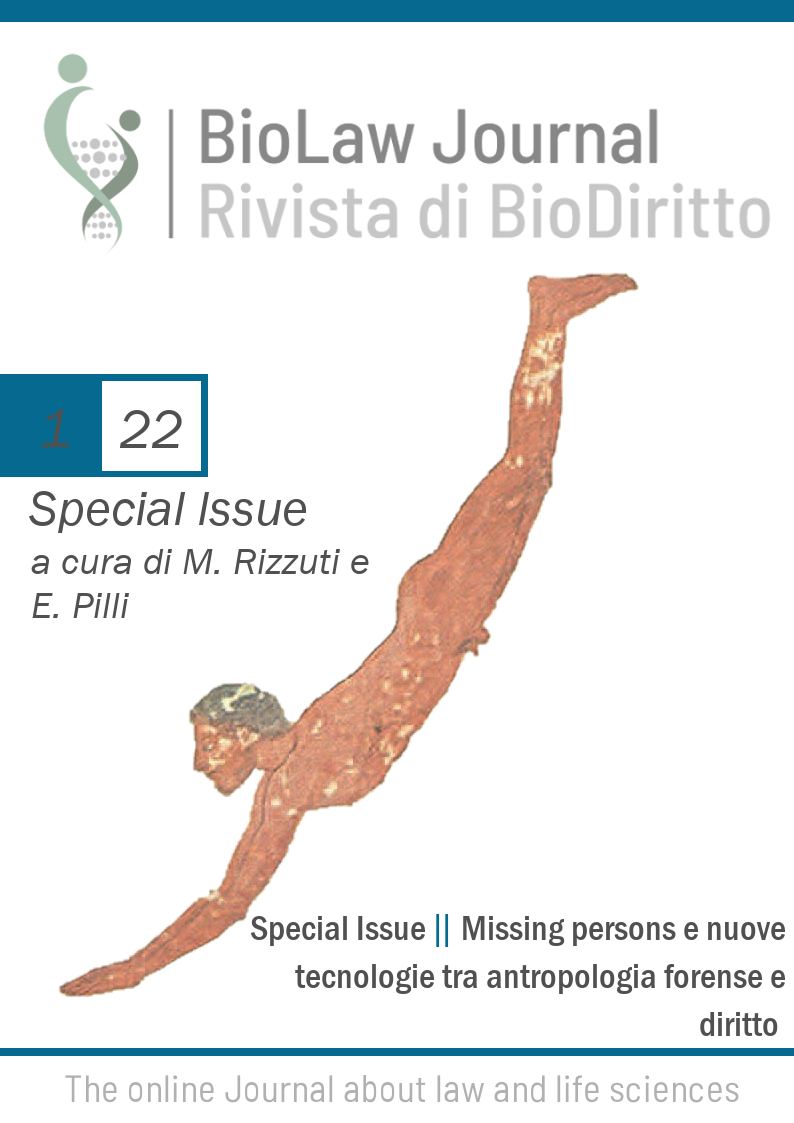Legal and ethical issues of research on the bones of unidentified persons: a comparative perspective
DOI:
https://doi.org/10.15168/2284-4503-2307Parole chiave:
Law and science, research on human bones, soft law, research ethics, committeesAbstract
This article looks at the legal and ethical issues arising from scientific ad-vances in the fields of bioarchaeological and forensic research on human bones. While DNA-based technologies allow methods of identification that were unthinkable just decades ago, the question arises as to whether legislation and guidelines govern-ing such research are keeping pace with developments. Similarly, new social concerns continue to emerge, as seen for example in the growth of migration and the associ-ated cultural differences. Comparing the legal situation in two civil-law countries (Ita-ly and Norway) and two common-law countries (the UK and the US), we come to the conclusion that – though maybe desirable – no legislation (hard law) is able to cover all legal and ethical aspects of such research, and that soft law in the form of guide-lines, codes of conduct and codes of ethics will continue to fill the legislative gaps. In the same vein, enforcement of these legal and ethical frameworks in the field of re-search would seem to be more in the hands of ethics committees than of the courts.
##submission.downloads##
Pubblicato
Come citare
Fascicolo
Sezione
Licenza
Copyright (c) 2022 Università degli Studi di Trento

Questo lavoro è fornito con la licenza Creative Commons Attribuzione - Non commerciale - Non opere derivate 4.0 Internazionale.





